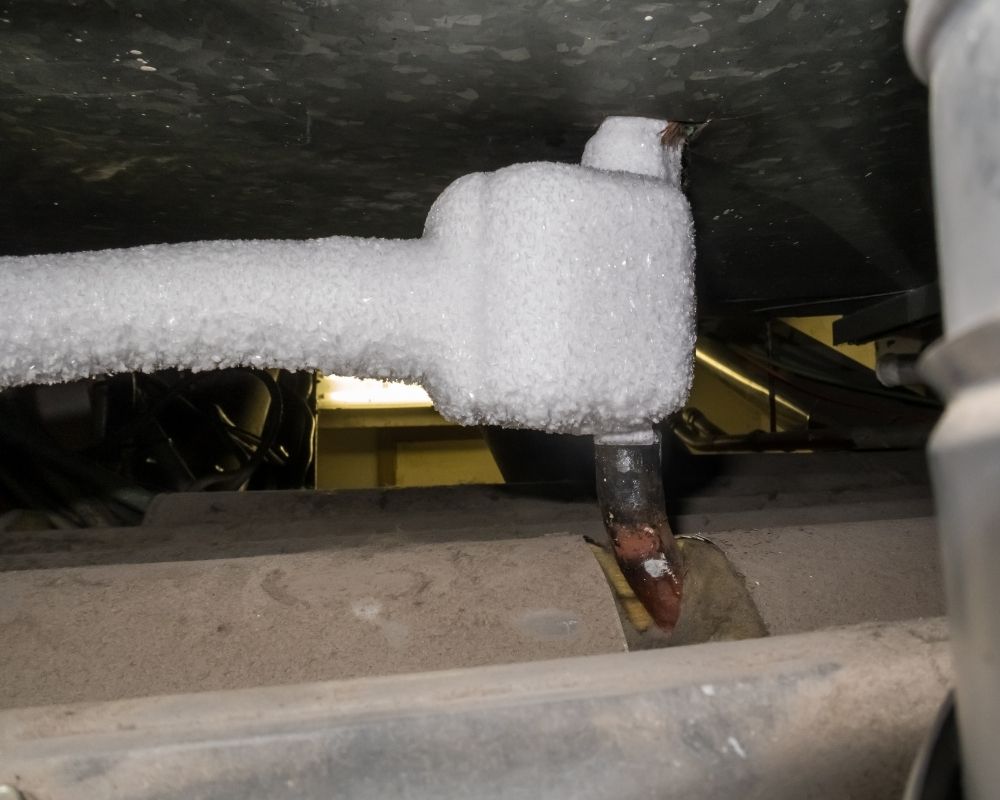Oh no! It’s gotten super cold, look out for frozen pipes, we don’t want you to be a water damage victim. Here are some tips for homeowners, realtors, and property managers to use in a freeze. Keeping pipes warm is most critical to remember when the temperatures at night drop below 18 degrees, especially on nights after the highest temperature of the day never went above freezing.
J & K Complete Services suggests these tips:
Outside walls with water pipes need to stay warm in the winter to avoid a freeze, this can save you a huge headache and thousands of dollars. Make sure you leave the vanity doors under bathroom sinks open and keep doors to small bathrooms open as well when the temperature drops.
Realtors and Property Managers, don’t forget to get the word out to your owners & tenants about setting thermostats to at least 65 degrees. Look around your house and make sure you know how the water gets to the second floor. Does it go behind that coat closet? If so, leave that closet door open when temperatures drop. We’ve seen several broken pipes in attic crawlspaces, bathrooms, sprinkler systems, and coat closets. A small space heater (from the hardware store for $20-$30) could save you from that $1000 deductible this winter.
If you are worried about your electric bill going up during a time pipes are likely to freeze, just remember how much that deductible could cost you if the pipes break. In addition, the bill for the plumber is not covered by insurance in most cases.
Obviously, any time it drops below 32 degrees, there is a risk of pipes freezing. So, if you plan to go out of town during the winter months, it is important to set your thermostat at 65 degrees or higher and leave all inside doors to bathrooms open for good, warm air circulation.
One great way to avoid water damage emergencies is to familiarize yourself with the location of water cut off valves in your living space. If it isn’t already labeled, take a zip tie and index card and label it BEFORE the temperatures begin to plummet.
Have questions about how to protect your pipes or avoid water damage emergency?
Give us a call, we’re happy to help. 301-206-2500

